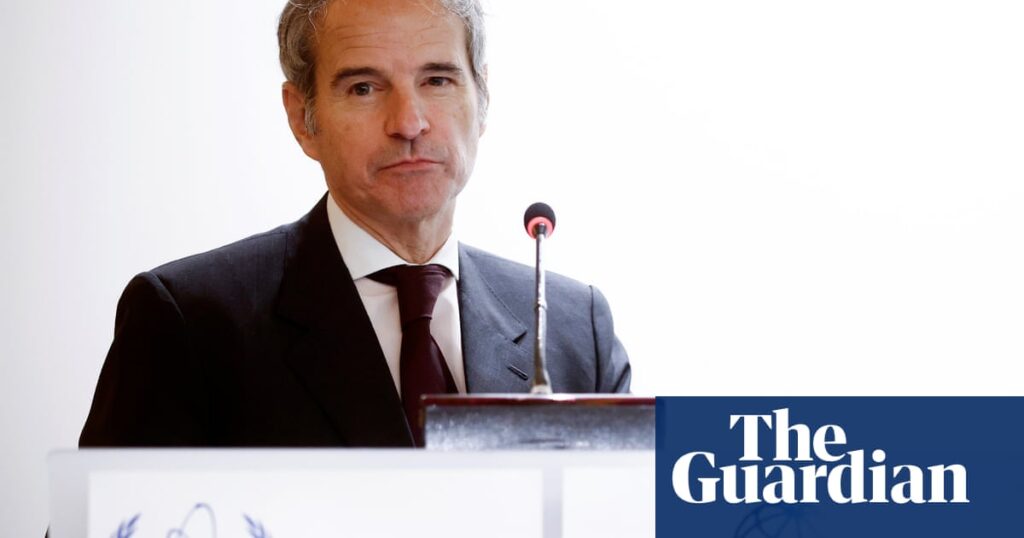
VIENNA – Iran could potentially produce enriched uranium within months, according to Rafael Grossi, the chief of the UN nuclear watchdog. Despite recent damage to Iran’s nuclear facilities from US and Israeli actions, Grossi indicated that Iran’s nuclear ambitions remain a pressing concern.
Immediate Impact
The International Atomic Energy Agency (IAEA) chief’s comments come on the heels of significant military actions. On June 13, Israel initiated a bombing campaign targeting Iranian nuclear and military sites, aiming to thwart Iran’s alleged nuclear weapon development—a claim Iran has consistently denied.
Following Israel’s actions, the US conducted bombings on three critical facilities linked to Tehran’s atomic program. Iran’s Foreign Minister, Abbas Araghchi, described the damage as “serious,” though specific details remain undisclosed. Former US President Donald Trump asserted that these attacks set back Iran’s nuclear program by “decades.”
Key Details Emerge
Despite the setbacks, Grossi expressed that Iran’s nuclear infrastructure is not entirely dismantled. “They can have, you know, in a matter of months, I would say, a few cascades of centrifuges spinning and producing enriched uranium, or less than that,” he stated on Friday, as reported by CBS News.
“They can have, you know, in a matter of months, a few cascades of centrifuges spinning and producing enriched uranium,” Grossi said.
By the Numbers
Iran’s estimated stockpile contains 408.6kg (900lbs) of uranium enriched to 60%—above civilian use levels but below weapons-grade. If further refined, this could potentially yield enough material for over nine nuclear bombs.
Industry Response
The situation raises significant questions about the fate of Iran’s uranium stockpile. Grossi acknowledged the uncertainty, stating, “We don’t know where this material could be. Some could have been destroyed, but some could have been moved.”
Iranian lawmakers have since voted to suspend cooperation with the IAEA, rejecting Grossi’s request to inspect the damaged sites, particularly Fordow, the main uranium enrichment facility.
What Comes Next
The IAEA’s ability to monitor Iran’s nuclear activities is crucial, as emphasized by US Secretary of State Marco Rubio. He reiterated Washington’s support for the IAEA’s verification and monitoring efforts, commending Grossi’s dedication and professionalism.
In an interview with Fox News, Trump expressed skepticism about the relocation of Iran’s stockpile, citing the limited notice given before the attacks. “It’s a very hard thing to do plus we didn’t give much notice,” Trump stated.
Background Context
The announcement comes amid heightened tensions over Iran’s nuclear ambitions. The country’s nuclear program has been a focal point of international scrutiny, with various nations expressing concern over its potential military applications.
According to sources familiar with the situation, the international community remains divided on how to address Iran’s nuclear capabilities, balancing diplomatic engagement with strategic deterrence.
Expert Analysis
Experts suggest that the timeline for Iran’s potential nuclear capabilities remains uncertain. The IAEA’s ability to access and verify Iran’s nuclear sites is seen as a critical factor in assessing the true scope of the threat.
Meanwhile, industry experts warn that the geopolitical implications of Iran’s nuclear developments could have far-reaching consequences, potentially destabilizing the region.
The timing is particularly significant because it coincides with ongoing international negotiations aimed at reviving the Iran nuclear deal, which seeks to limit Iran’s nuclear capabilities in exchange for economic relief.
The full interview with Rafael Grossi will air on CBS’s Face the Nation, providing further insights into the IAEA’s stance and the international response to Iran’s nuclear activities.







